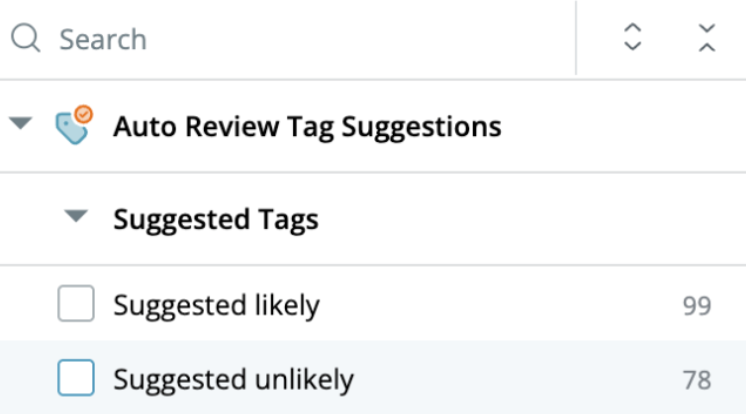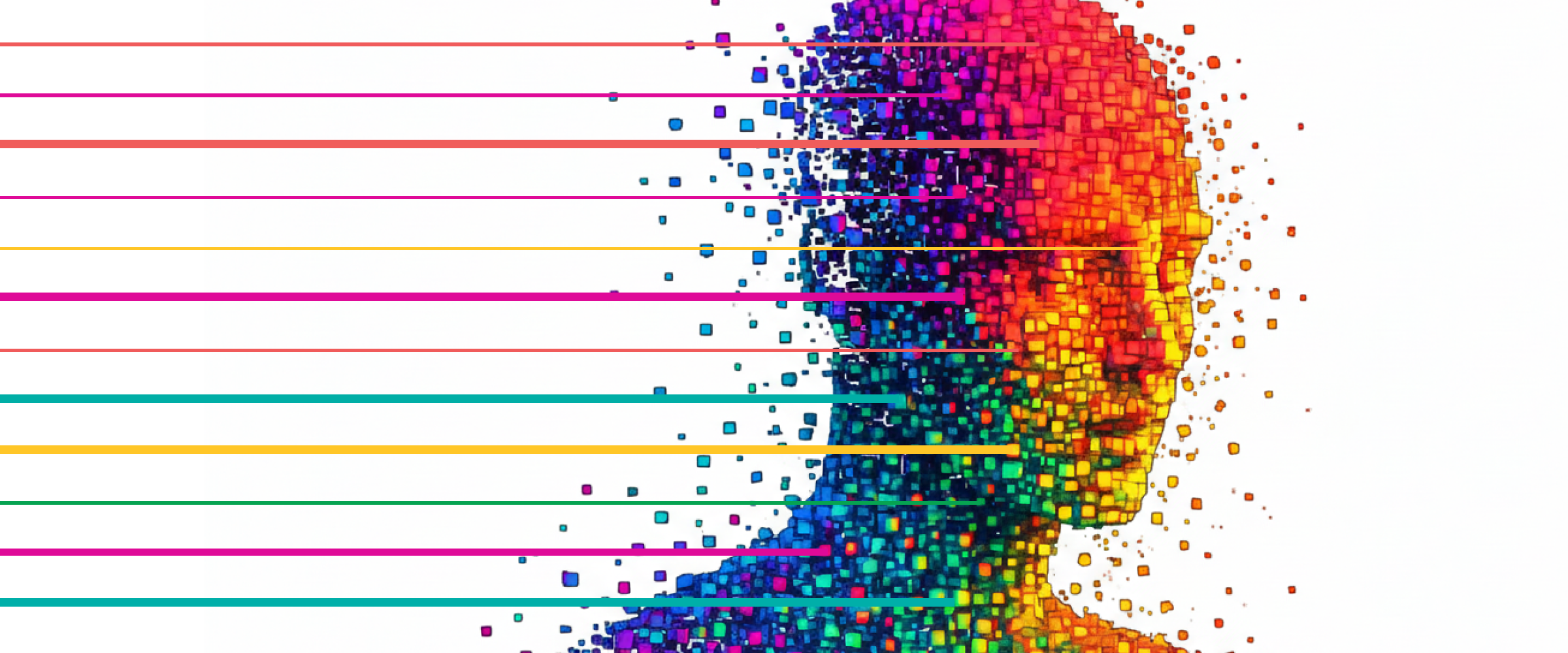⚡️ 1-Minute DISCO Download
AI vs. generative AI – what’s the difference?
Nearly overnight, artificial intelligence (AI) has gone from sci-fi dream to trend to full workplace revolution. If the rapid growth and cultural penetration of this technology has left you confused (what is AI vs. generative AI?), you’re not alone.
With 86% of lawyers already using or planning to adopt generative AI (GenAI) tools in the next two years, it’s past time to get up to speed.
What is AI?
AI is a term of art traditionally used to reference “artificial intelligence.” Given that machines cannot perform all cognitive functions a human can, AI is now often used to refer to augmented intelligence: Technology aimed at amplifying human capability.
Augmented intelligence is understood today as the use of advanced machine learning and AI to handle repetitive work to free up humans to focus on higher-value tasks.
These repetitive tasks can include:
- Fact-finding
- Research (legal and otherwise)
- Dialogue and conversation
- …and more
AI systems can range from simple tools designed to complete specific tasks to complex systems that learn and adapt over time.
The most basic AI systems operate from large pools of data inputted by humans, rapidly searching within that data to complete a task. Examples of these AI systems include voice assistants like Alexa and Siri.
More complex examples of AI systems you may be familiar with include recommendation engines like the ones used by Netflix and Spotify to make suggestions based on content you’ve consumed. These systems learn from user preferences over time to curate choices from the data set with increasing accuracy.
Another more complex example? DISCO’s AI tag predictions for document review. This functions much like Netflix, learning from a legal team’s applied tags to prioritize its review universe to suggest similar documents to which that tag should be applied.
Final note: AI includes generative AI, a specialized and powerful subset of the technology.

What is generative AI?
Generative AI (sometimes, “GenAI”) is a subset of artificial intelligence that generates new content.
GenAI uses machine learning techniques to generate new data – including text, images, music, and speech – that is similar but not identical to the data used to train the model.
You’ve likely heard of (or used) ChatGPT, a popular consumer-facing generative AI tool. GPT is a large language model (LLM) that can generate text based on patterns it has learned from analyzing vast amounts of training data.
For example, if you ask GPT to generate a new sonnet in the style of Shakespeare, it can do so. This doesn’t mean GPT understands Shakespeare, but rather, is predicting which words are most likely to come next based on the general linguistic knowledge it acquired during training (which includes all of the works of Shakespeare), and generating them as output.
In the legal world, at DISCO, Cecilia AI is our integrated tech suite of generative AI solutions – and it’s secure, powerful, and built for legal use.
Here are just some examples of what Cecilia can generate in less time than it will take you to read this list:
- Answers to your case questions – not just search results. Ask a question and Cecilia Q&A will interrogate your evidence, helping you build a stronger case.
- Deposition summaries that bring the key points of a testimony into view faster. All it takes is uploading a transcript with a click.
- Document summaries that speed up document review and accelerate understanding (even from foreign language documents).
- Explanations for tagging decisions in Cecilia Auto Review, our GenAI document review solution that can review up to 3,800 documents per hour.
Note: All generative AI is AI, but not all AI is generative. The key differentiator is generative AI's capability to create new content.
Related: Generative AI is prone to hallucinations – the confident presentation of incorrect information as fact. Learn more, including how to write prompts to avoid hallucinations. 💡
What is machine learning?
Machine learning, (sometimes “ML”), is an application of AI that uses algorithms to extract knowledge from data to learn autonomously. This is the “more complex” AI system I mentioned earlier.
Before machine learning, every AI system worked off of rule-based systems. Chatbots, for example, are AI systems that work off of simple decision trees.
Back then, the working knowledge of AI was controlled by what – and how much – data humans put into it. Some people refer to this type of AI as GOFAI: “good old-fashioned AI.” Machine learning is the development of computer systems that can learn and adapt without being explicitly programmed.
Take for instance ETAs on navigation apps that assist in telling us when to leave and when we can expect to arrive. This feature works off of historical traffic data, recognizing how similar traffic conditions in the past (say, a major accident) have affected commute time. The ETA is not based on a predetermined calculation, but rather the knowledge gleaned by the AI through machine learning.
One of the most significant applications of machine learning in the legal industry is contract review and analysis. By using machine learning algorithms, legal professionals can quickly review, analyze, and assess contracts.
Also, as I referenced Netflix above, it also uses machine learning to personalize promotional content and optimize its creation process.
All machine learning is an application of AI, but not all AI uses (or needs) machine learning. The key quality of machine learning is that it can self-teach and improve.
What is deep learning?
Deep learning is a more complex subset of machine learning that uses multiple layers in an artificial neural network to progressively extract more meaning.
The elevator pitch? Machine learning mimics how humans learn; deep learning mimics (or seeks to mimic for now) how the human brain works.
Like I said: complex. How did we get here?
The algorithms behind machine learning are sophisticated, but researchers found it still had limitations, especially in nuanced data sets. The simple neural networks created by these algorithms just can’t replicate the power of the human brain.
Deep learning is trying to change that by creating larger, more sophisticated neural networks. Self-driving cars (thankfully) rely on this more complex subset of machine learning, using algorithms to understand if humans or other cars are nearby, and how to react accordingly.
Deep learning plays a key role in how DISCO AI speeds up document review. It actually works like an AI-powered legal assistant, diligently watching (and learning) from how a team works on a document set. This informs its perceptions on documents and once it has enough data to understand what may or may not be relevant, it will deliver recommendations to the case team. As these recommendations are approved or rejected, DISCO AI only gets smarter, cutting review time in the process. For example, DISCO’s AI system, in contrast to most others, understands that the phrase man bites dog is different from dog bites man.
For example, DISCO’s AI system, in contrast to most others, understands that the phrase man bites dog is different from dog bites man.
All deep learning is machine learning, but not all machine learning is deep learning. Deep learning’s key differentiator is its ability to learn from increasingly complex and nuanced data.
What is agentic AI?
Agentic AI is the latest buzz in generative AI, ushering in an era where AI tools can be conversational and act and react autonomously. In February 2026, DISCO was first to announce an enterprise-scale agentic AI solution for ediscovery. Let's break down what this means.
Agentic AI is distinguished by three foundational attributes:
- Autonomy: These agents can perform tasks independently, reducing the need for continual human direction or intervention.
- Adaptability: Through ongoing interaction and feedback, agentic systems evolve their decision-making frameworks and improve with experience.
- Goal orientation: They possess the capacity to deconstruct complex tasks, formulate strategies, and pursue defined objectives with purposeful execution.
Agentic AI is particularly effective in environments requiring real-time decision-making and high-volume data processing, seen in applications like contract review, customer service, software engineering, and autonomous systems and cars. For legal professionals, these agents can streamline operations, enhance accuracy in document analysis, and enable more informed strategic planning.
Agentic AI adapts to dynamic environments with minimal human intervention by leveraging those advanced deep learning algorithms we mentioned earlier.
In October 2024, Gartner projected that by 2028, approximately 15% of daily business decisions will be autonomously executed by agentic AI systems. This forecast underscores the profound operational and strategic shift these technologies are poised to deliver, with implications for efficiency, compliance, innovation, and competitive advantage. The future of AI is not just on the horizon; it is being shaped now.
AI vs. generative AI vs. agentic AI examples: round-up
AI:
- Chatbots, which work off decision trees.
- Voice assistants, like Alexa and Siri.
- Complex examples: Spotify’s recommendation engine, DISCO AI’s tag predictions.
Generative AI and LLM examples:
- ChatGPT, an LLM which generates text based on its linguistic training on massive amounts of data.
- DISCO’s Cecilia Q&A, which generates cited answers to a team’s case questions based on the provided document set.
- DISCO’s document and deposition summaries, which generate succinct definitions of lengthy documents, including foreign-language documents.
Machine learning examples:
- The ETA in Google Maps, which uses historical (and in some cases, current) traffic data to tell you how long your trip might take, and when to leave.
- Netflix’s recommendation engine, which learns from your content choices to recommend other content.
- Contract review and analysis.
Deep learning:
- The technology in self-driving cars, which uses algorithms to understand if humans or other cars are nearby, and how to react accordingly.
- DISCO AI for document review, which watches and learns from how a team works on a document set to deliver predicted tag recommendations – and continues to learn from the human team’s acceptance or rejection of those recommendations, refining its approach.
Agentic AI:
- DISCO announced an agentic AI capability for Cecilia Q&A, Advanced Research Mode, which makes autonomous decisions in search to answer complex questions and receive robust responses, including whether to summarize a story across documents, prepare analysis of key custodians and witnesses, or perform a production gap report
- Mercedez-Benz recently launched an autonomous AI agent with conversational capabilities, answering questions like: “Could you guide me to the nearest fine-dining restaurant for a unique culinary experience,” “Does the restaurant have good reviews,” and even “What is the chef’s signature dish?”
- Through the use of agentic AI, Microsoft’s Copilot is evolving from a conversational AI assistant to a digital coworker that can reason, plan, and act independently to automate tasks and workflows
- Bayer has even leveraged agentic AI to predict cold and flu outbreaks through the use of trend data based on Google searches (e.g., searching medicine or symptoms) as well as external data such as weather information and public flu reports.
Secure Generative AI with DISCO
I hope that this article helped to build your foundational understanding of AI vs. generative AI. The field is rapidly evolving, and DISCO is proud to be at the forefront as a trusted authority in the space – and we would love to work with your team.
Are you ready to investigate the facts faster and get to the answers sooner with secure AI purpose-built for lawyers? Book your demo.










